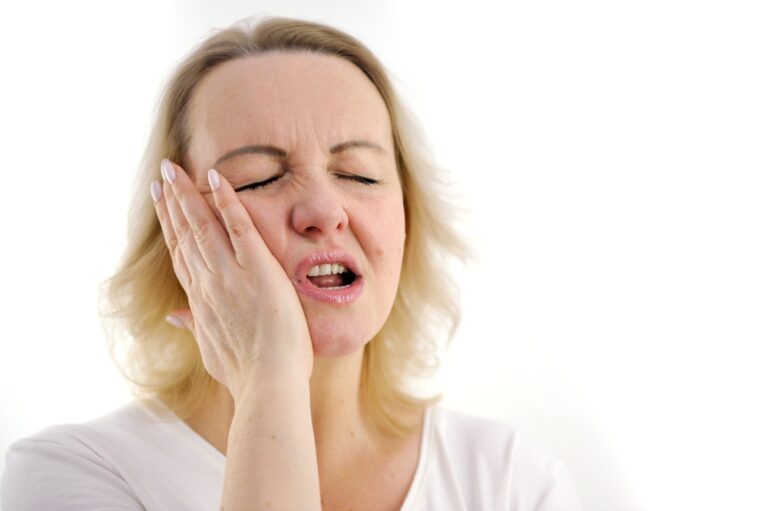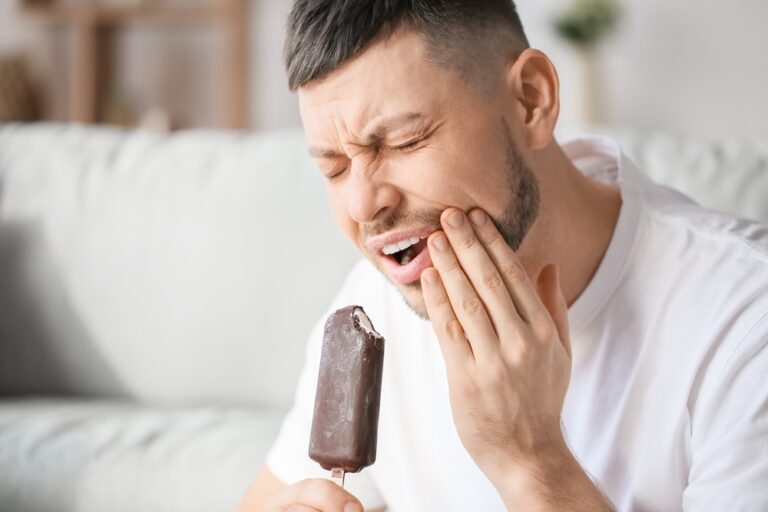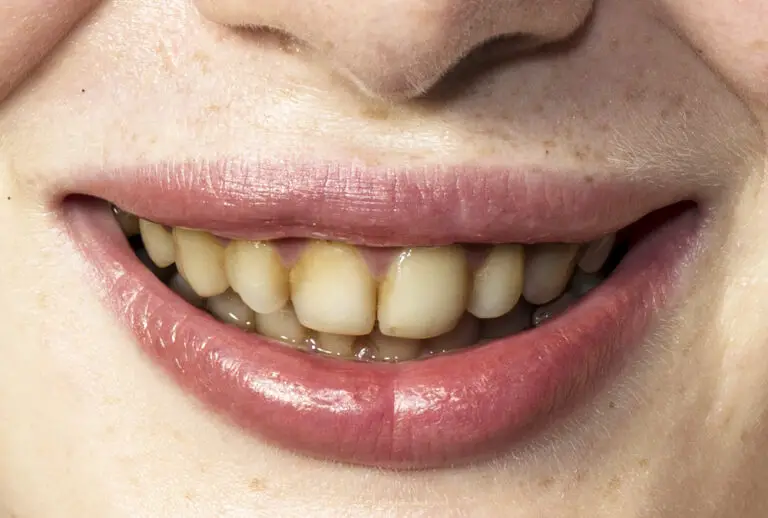If you’ve ever bitten into a crunchy apple or felt your teeth squeeze together at night, you’ve likely heard some odd sounds coming from your mouth. Teeth can make all kinds of noises – clicks, taps, squeaks, and grinds. While this can be puzzling or concerning, in most cases it’s completely normal. The sounds are produced by the components of your mouth and teeth interacting as you eat, sleep, and go about your day. Let’s explore the reasons teeth can be noisy and when it may indicate a dental problem needing attention.
What Causes Noisy Teeth?
Teeth noises have a variety of causes, ranging from normal mechanics to underlying conditions.
1. Eating and Chewing
The most common source of tooth noise is the simple act of eating. As you chew and bite down, your upper and lower teeth make contact. This causes them to click, tap, and knock against each other and food particles get wedged between them. Harder foods like nuts or carrots are more likely to elicit noises than soft foods.
Chewing also generates sounds from your temporomandibular joint (TMJ), which connects your jawbone to your skull. As you break down food with your teeth, the joint and surrounding muscles and ligaments move and rub together. This produces a grinding or crunching noise that is usually painless. The sounds associated with eating are generally harmless, but pay attention if they become excessive.
2. Toothbrush Abrasion
Vigorously brushing or using a stiff-bristled brush can also lead to some squeaking and grinding noises as the bristles rub across your teeth. This is especially true if you favor a horizontal scrubbing motion rather than gentle circles. The friction and pressure on the enamel surfaces causes the scraping vibrations. Adjusting your brushing technique can help minimize this.
Flossing elicits similar noises for the same reasons. As floss scrapes between tighter teeth with less space, high-pitched grinding and snapping noises can occur. Use a gentle sawing motion and avoid snapping floss down on the tooth’s surface.
3. Malocclusion
The way your teeth fit together when you bite down is referred to as your occlusion. Sometimes the upper and lower rows of teeth don’t align properly, called malocclusion. This results in uneven contact between teeth surfaces which can cause various sounds.
Crowded, crooked, or shifted teeth are common sources of malocclusion. When teeth angles clash instead of aligning smoothly, the abnormal grinding produces clicking, popping noises from the friction. Jaw misalignment or growth abnormalities in children can also lead to a bad bite and noisy symptoms. Orthodontia is often needed to realign the teeth.
4. Bruxism
Teeth grinding or clenching, medically termed bruxism, is a leading contributor to noisy teeth. Most people grind unconsciously during sleep due to underlying stress, anxiety, sleep disorders, or other factors. Awake bruxism usually arises from concentration on tasks.
The constant grinding forces put severe pressure on the teeth. This abrasive friction results in scraping, tapping, and even loud, jarring crunches as you essentially chew on air. Telltale signs are excessive tooth wear, jaw pain, and mouth guard indentations. Managing bruxism is key to preventing further tooth damage and noise.
5. TMJ Disorders
Problems with the temporomandibular joint (TMJ) where the jaw hinges are a prime reason for concerning noises. TMJ disorders involve misalignment, inflammation, and deterioration of the joint from osteoarthritis, injuries, displacements, and more.
As the joint area degrades, normal function is impaired. Jaw movements generate cracking, clicking, grating, and friction sounds. Pain and soreness frequently co-occur as well. Seeking prompt TMJ treatment can help restore mechanics and silence noises.
6. Orthodontic Appliances
Dental devices like braces, aligners, and retainers are infamous for their clicking and snapping. Metal braces use elastics to create tension between brackets. This elastic traction produces frequent squeaking and grinding sounds from metal-on-metal contact. Rubbery aligner trays also click as they snap onto teeth.
After orthodontic treatment, a retainer holds teeth in corrected positions. But as it presses against and clasps teeth, the plastic can creak and pop audibly. Proper use and adjustments will diminish noises over time. Lubrication gels also help braces glide more smoothly.
When to See Your Dentist?
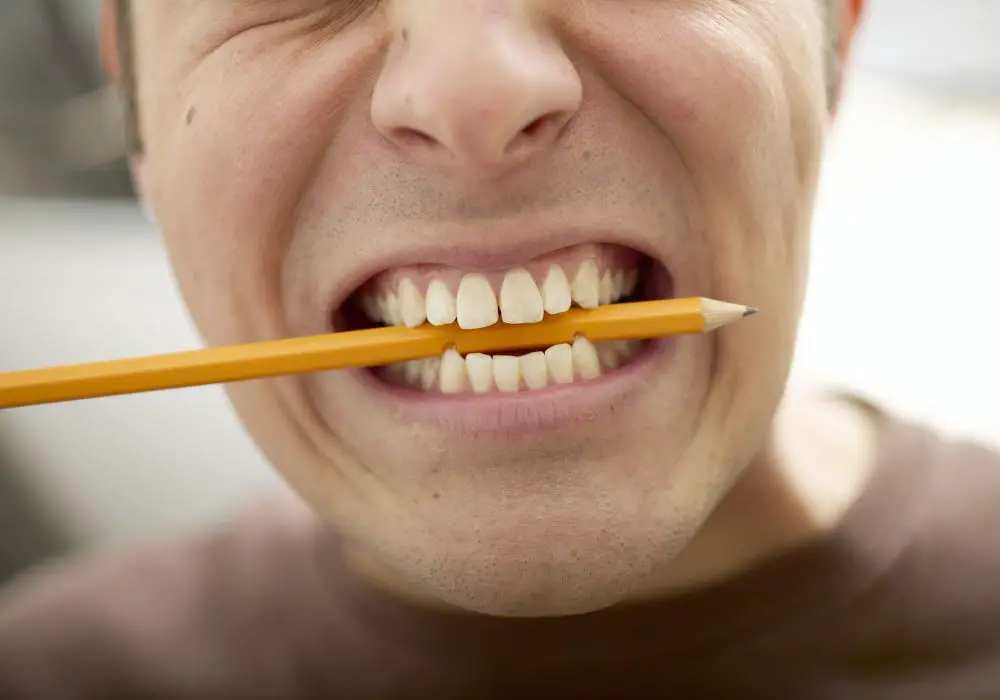
Not all tooth noises demand immediate attention. But certain symptoms should prompt a dental visit to identify any underlying problem requiring treatment. Contact your dentist right away if you have:
- Sudden cracking, snapping, or popping with no obvious cause
- Clicking, crunching, or grating that is new, worsening, or persistent
- Joint noises accompanied by pain, soreness, or stiffness
- Difficulty opening your mouth fully
- Tooth fracture, damage, or increased looseness
- Jaw muscle swelling not from injury
Quick evaluation and treatment are key to preventing complications and permanent tooth, joint, or bite damage in cases like dental injuries, TMJ disorders, or bruxism. Better to get noisy symptoms checked out, especially with additional pain.
Diagnosis of Noisy Teeth
To get to the bottom of tooth noise, the dentist will:
- Perform an oral exam looking for signs of decay, fractures, bite issues, or other abnormalities
- Check range of motion and listen closely to noises elicited by opening and closing mouth
- Have you bite down on a thin sheet of foil to analyze your bite imprint and alignment
- Tap gently on teeth to test for fractures, damage, or looseness
- Order x-rays to visualize below the surface for underlying conditions
- Refer you to specialists like orthodontists or TMJ doctors for further diagnosis if needed
Identifying the precise origin and cause of the noise is crucial for proper treatment.
Treatments to Stop Tooth Noises
The treatment that will silence noisy teeth depends on the cause found. Options include:
- Dental restoration to fix decays or cracks triggering noises
- Tooth extractions for non-salvageable teeth adversely affecting bite
- Dental splint or night guard to protect from bruxism grinding
- Physical therapy and exercise for TMJ strengthening and function
- Anti-inflammatory medication for arthritis pain relief
- Stress management and behavioral therapies for bruxism triggers
- Orthodontics like braces or retainers to realign teeth
- TMJ specific treatment – steroid injections, surgery, rehabilitation
At home, switch to a soft brush, massage the jaw, use heat/cold therapy for soreness, and avoid hard foods. Prompt dental repair of damaged teeth can prevent worsening.
When Are Noises Normal?
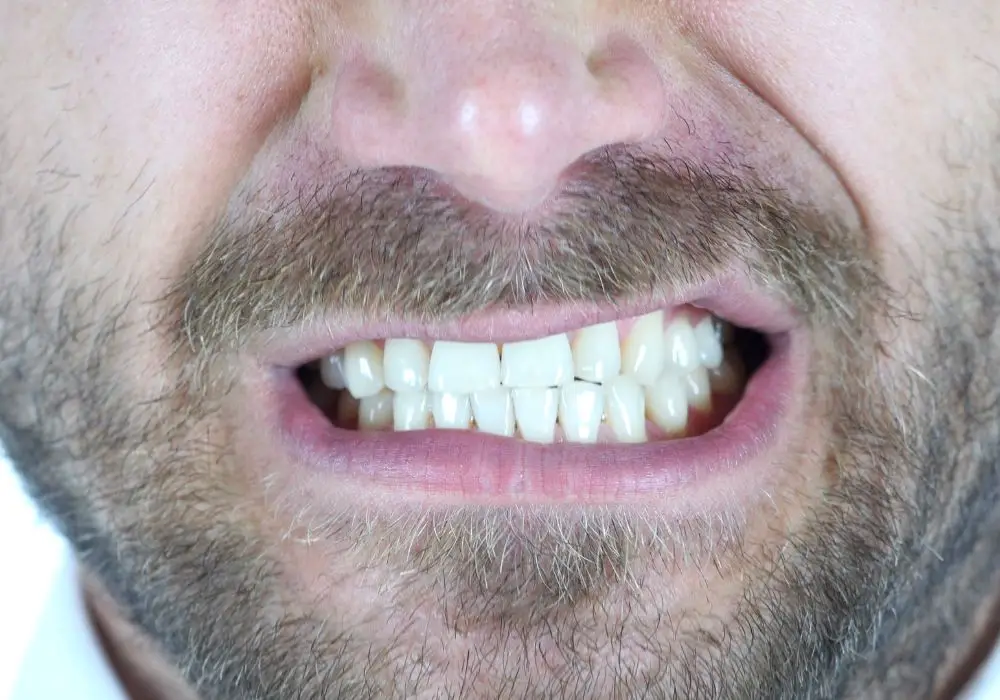
Not all tooth noises spell trouble. It’s perfectly normal to hear occasional:
- Clicking when yawning or shifting your jaw side-to-side
- Brief popping when closing your mouth normally
- Slight creaking as you begin to chew
- Transient mild grinding when you are stressed or focused
If the noises are minor, intermittent, and painless, they usually just indicate normal temporomandibular joint mechanics or teeth contacts. Jaw massage can provide relief. However, persistent bothersome tooth noises should always be evaluated professionally.
Preventing Excess Tooth Noise
You can help minimize excessive noises with these tips:
- Brush gently using circular motions with a soft brush
- Floss once daily with care to avoid snapping down on teeth
- Use orthodontic wax on braces to reduce metal friction
- Ask your dentist about lubrication gels for braces
- Have regular dental cleanings and exams to detect emerging problems
- Wear a night guard if you grind your teeth
- Avoid chewing on pens, nails, ice, or other hard objects
- Manage stress through relaxation techniques, therapy, or medication
- Improve posture and jaw positioning when at rest
- Apply moist heat or ice packs to painful jaw areas
With some minor adjustments, you can ensure your teeth stay healthy and keep their noises to a minimum.
When to Seek Emergency Dental Care?
Contact your dentist immediately or go to the emergency room if noises are coupled with:
- Sudden severe toothache or jaw pain
- Inability to open or close your mouth fully
- Jaw locking in an open or closed position
- Tooth that is cracked, loose, or knocked out
- Facial swelling around jaw and neck muscles
- Bleeding that won’t stop
- Numbness in your tongue, lips, or face
- Concussion from trauma to the mouth
These signal a dental emergency needing urgent attention to prevent long-term damage. Prompt care helps avoid complications and improves the chances of saving injured teeth. Don’t hesitate to get severe noises and symptoms evaluated right away.
Conclusion
Hearing the occasional click, pop, or grinding sound from your mouth? Brief, minor tooth noise is generally harmless. But persistent, bothersome, or painful noises could arise from an underlying dental condition needing treatment. Work with your dentist to determine the cause and find the right solution to keep your teeth healthy and noise-free. With the proper care, your teeth will function smoothly and quietly for years to come.
Frequently Asked Questions

What causes a clicking sound when I open my mouth?
A clicking sound when opening your mouth usually indicates temporomandibular joint (TMJ) dysfunction. It happens when the disc of cartilage in the joint pops in and out of position.
Why do my teeth hurt when I bite down?
Pain when biting down can be caused by dental problems like tooth decay, cracked teeth, gum disease, bite misalignment, damaged fillings, or bruxism.
What triggers teeth grinding at night?
Nocturnal teeth grinding often relates to stress, anxiety, sleep disorders, abnormal bite, teeth misalignment, some medications. It typically occurs unconsciously.
Why do my teeth hurt after eating something sweet?
Temperature sensitivity is usually the reason. Gum recession can expose the root surfaces which have nerves and ache with hot or cold. Tooth decay can also cause pain.
How can I stop grinding my teeth at night?
Wearing a custom night guard prevents grinding. Managing stress, doing jaw exercises, relaxation techniques, and in severe cases, Botox injections in muscles can provide relief.

